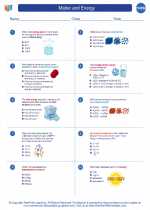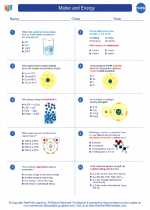Convective Rain
Definition: Convective rain is a type of precipitation that occurs as a result of the vertical movement of air in the atmosphere, often leading to the formation of thunderstorms and heavy rainfall.
Formation of Convective Rain
Convective rain is typically associated with warm, moist air rising rapidly in the atmosphere. This rising air cools as it ascends, leading to the condensation of water vapor and the formation of clouds. As the water droplets within the clouds grow in size, they eventually become heavy enough to fall as precipitation, resulting in convective rain.
Factors Influencing Convective Rain
Several factors can influence the formation and intensity of convective rain, including:
- Temperature: Warmer air can hold more moisture, increasing the potential for convective rain when the air rises and cools.
- Humidity: Higher humidity levels can contribute to the availability of water vapor for condensation and cloud formation.
- Atmospheric Instability: Unstable atmospheric conditions, often characterized by rapid air uplift, can enhance the development of convective rain.
- Topography: The presence of mountains or other geographical features can influence the uplift of air and the formation of convective rain.
Study Guide for Convective Rain
To understand convective rain in more depth, consider focusing on the following key areas:
- Learn about the processes involved in the formation of convective rain, including the role of air uplift, condensation, and cloud development.
- Explore the characteristics of convective rain, such as its association with thunderstorms, heavy precipitation, and localized nature.
- Study the factors that influence convective rain, including temperature, humidity, atmospheric stability, and geographical features.
- Examine real-life examples of convective rain events and their impacts on the environment, agriculture, and society.
- Consider the relationship between convective rain and broader atmospheric phenomena, such as the water cycle and climate patterns.
By delving into these aspects of convective rain, you can develop a comprehensive understanding of this important meteorological process and its implications for the natural world.
.◂Chemistry Worksheets and Study Guides High School. Matter and Energy

 Worksheet/Answer key
Worksheet/Answer key
 Worksheet/Answer key
Worksheet/Answer key
